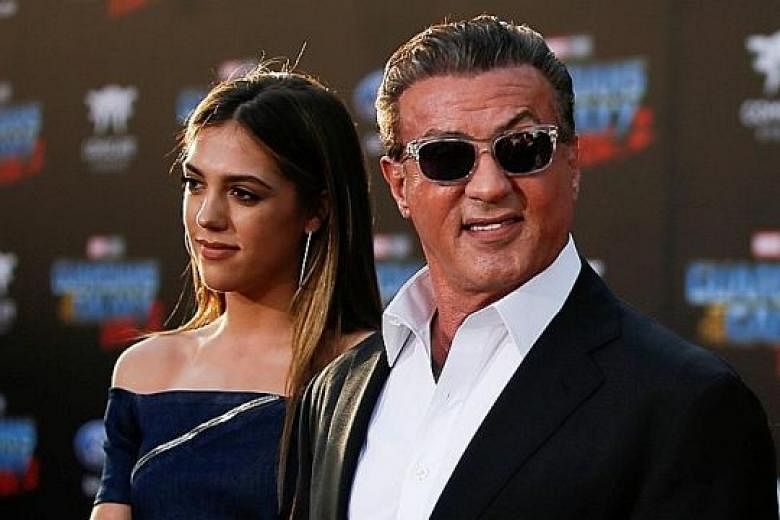NEW YORK • Rocky has been knocked out for good, so the online rumours went.
But do not count out actor Sylvester Stallone, known for his most famous character, the boxer Rocky Balboa, just yet.
On Monday, he took to social media to counter-punch a hoax that had circulated on Facebook and Twitter that claimed the actor had died at 71 following a battle with prostate cancer.
"Please ignore this stupidity," he posted. "Alive and well and happy and healthy. Still punching."
His younger brother, musician Frank Stallone, posted: "What kind of sick demented cruel mind think of things like this to post? People like this are mentally deranged and don't deserve a place in society.
"It upset my 96-year-old mother, so I'm doubly upset," he added.
This marks at least the second time that rumours of Stallone's death had circulated online. The first time, in September 2016, a fake CNN report of his supposed death appeared on Twitter.
The actor is far from the first person to be a victim of a celebrity death hoax. They have been around for ages.
In 1966, a small swath of rock fans claimed Beatle Paul McCartney had died and was replaced by a look-alike.
The rise of social media has made the spreading of such rumours easier. Among the celebrity targets of online death hoaxes are actor Robert Redford, Queen Elizabeth II and action star Jackie Chan.
In 2010, a Twitter user with fewer than 1,500 followers tweeted that actor Morgan Freeman had died in his Burbank home. The person later said: "It was an inside joke between friends. I had no intention of things turning out this way."
One reason hoaxes spread, even from such a minor Twitter account, is because people care about celebrities, said BuzzFeed media editor Craig Silverman.
"Fake news relies on viral sharing," he noted. "If you think about why so many stars are subject to death hoaxes, they've been part of a pop culture that people have an emotional connection to.
"And that is at the core of what makes fake news work."
Mr Mark Bell, an Indiana University adjunct professor who focuses on deception in digital media, said many hoaxers find deception exciting. "People like to lie," he told The New York Times in 2012. "They get a thrill from it... especially a lie that is believed by somebody else."
Some hoaxes are phishing scams, such as a story claiming actor Brad Pitt had killed himself that began circulating on Facebook in 2016.
The post was mocked up to look like a Fox News report, complete with the network's logo and tagline saying "a purported Fox News video showed that the Hollywood actor hanged himself".
Users who clicked on the post were not redirected to the Fox News website, but a random page that requested their log-in information, which would allow hackers to access personal data.
Some fake news websites that, at first glance, appear to be legitimate, such as MSMBC and Usmagazine. us, get advertising revenue for every click.
They use celebrity hoaxes on social media to receive a windfall of clicks and money.
But most hoaxes can be avoided with a few Internet searches and a sharp eye. The simple steps to spot a deception include looking for a byline on the story and keeping an eye out for proper grammar and punctuation.
Then, if you are a Stallone fan, your world will not be so rocked straight away if you come across another report claiming that he has died.
WASHINGTON POST

